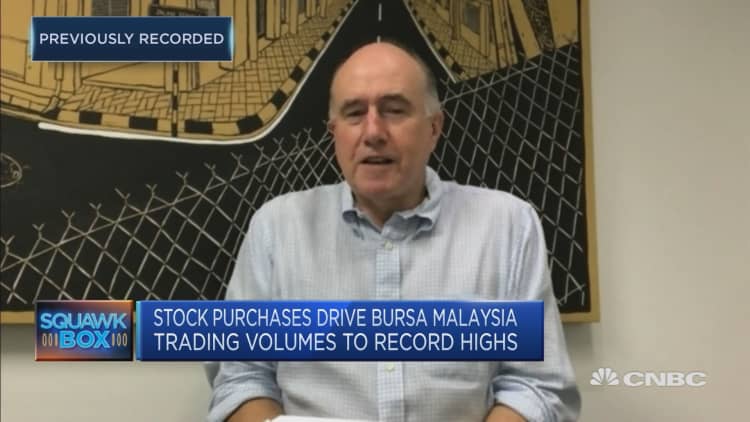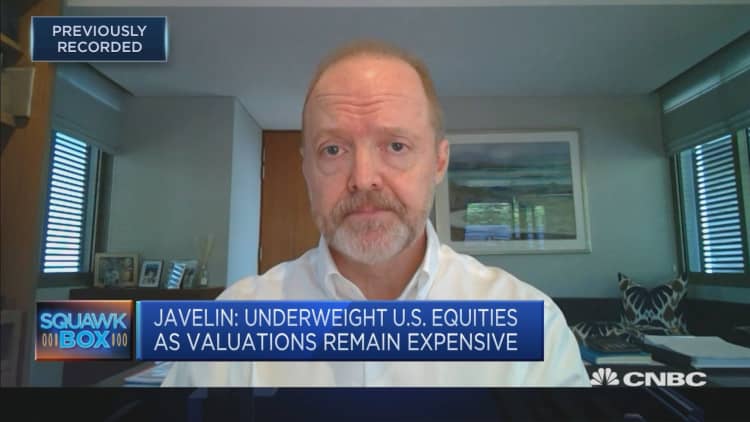
Malaysian stocks have been among the top performing in Southeast Asia — and that's thanks in part to the government's coronavirus support measures which have given local retail investors "money to play with," an investor said on Wednesday.
Participation by Malaysian retail investors has hit a record high this year, while foreign funds retreated from several stock markets around Asia.
Bursa Malaysia, the exchange operator, said retail investors recorded a net buy of 6.4 billion ringgit ($1.53 billion) worth of securities in the first six months of 2020. In contrast, foreign investors registered a net outflow of $3.79 billion during the period, data showed.
The exchange also said average daily trading value by retail investors reached 912 million ringgit ($218.7 million) in January-to-June this year — more than doubling the 400 million ringgit ($95.9 million) recorded for the entire 2019.
Gerald Ambrose, chief executive of Aberdeen Standard Islamic Investments in Malaysia, told CNBC's "Squawk Box Asia" that a "coincidence of factors" made the stock market "look very attractive to retail investors."
He explained that several measures by the government to support the economy during the pandemic-induced slump have given Malaysians greater access to cash. Those measures include allowing people to delay payments on certain loans and loosening the criteria for withdrawing money from a federal pension fund.
"I think these factors have all given people money to play with," said Ambrose.
"Malaysians do like to have a go if there is the option of making serious money, that sort of feeling is there now," he added.
More retail investors a good thing
The increase in retail investor participation has helped the benchmark Malaysian stock index — the FTSE Bursa Malaysia KLCI Index — to recoup almost all of its losses from a sell-off in March. As of Tuesday, the index has lost 2.1% this year — one of the smallest losses among major Southeast Asian indexes.
Among stocks that have performed well are glove producers, which reported a surge in demand as a result of the coronavirus pandemic. Malaysia-listed shares of Top Glove, the world's largest medical glove maker, have surged by more than 440% this year.

Some investors and analysts have raised concerns that greater involvement by retail investors could lead to excessive speculation in the market. But Ambrose said the presence of retail investors is actually a good thing.
"Certainly it's good to see retail traders back. And if stocks pick up and people are making money, I don't think there's any harm in that," he said.
But he added that the exchange may want to watch for "syndicates" that excessively pump up stocks before dumping them, which tend to hurt retail investors the most.
"I think that's the sort of the thing the stock exchange might want to come in and close off. I don't think they want to kill everything."


